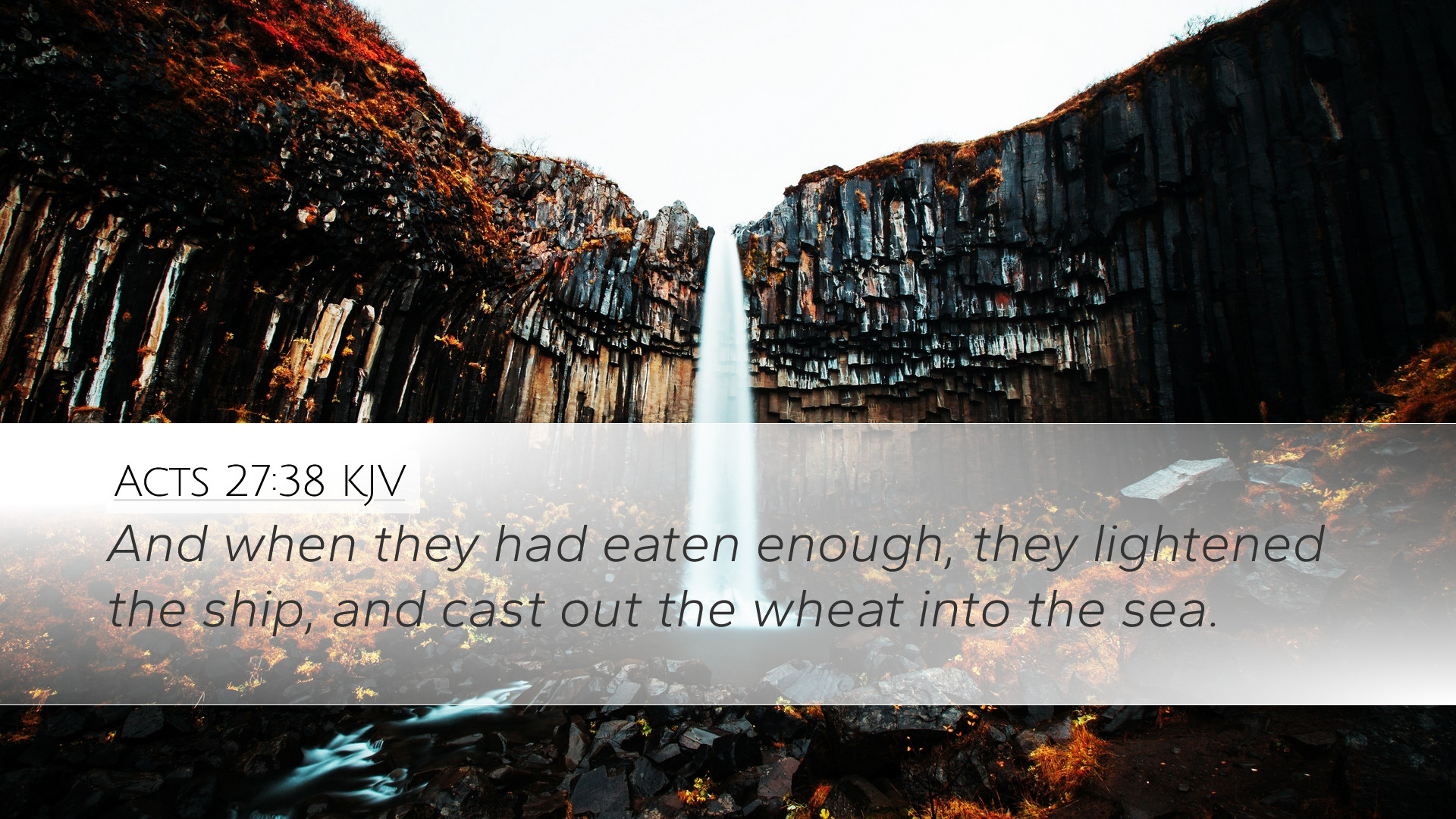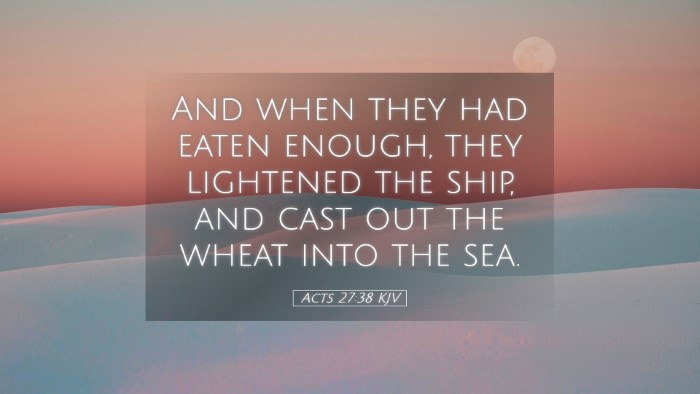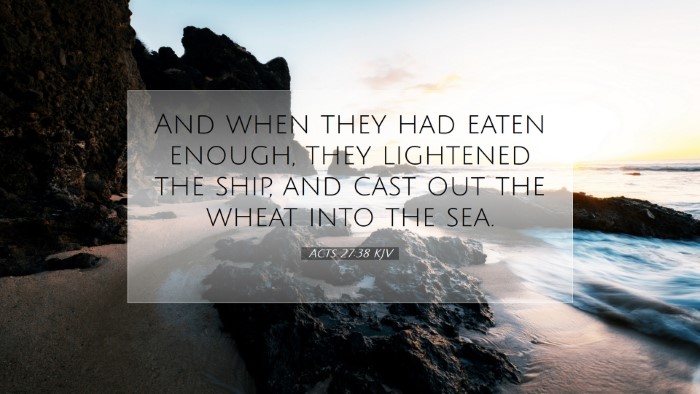Commentary on Acts 27:38
Verse: Acts 27:38 - "And when they had eaten enough, they lightened the ship, and cast out the wheat into the sea."
This passage occurs within the narrative of Paul's perilous journey to Rome, highlighting themes of desperation, faith, and divine providence amid trials.
Contextual Background
Acts 27 details Paul's journey as a prisoner to Rome. The voyage encounters severe challenges, including a fierce storm that ultimately threatens the lives of everyone on board. Understanding this perilous context is vital for interpreting Acts 27:38 meaningfully.
Commentators like Matthew Henry emphasize that this chapter reflects God's sovereignty, demonstrating how He protected Paul, thereby affirming the Lord's promises. Even in the face of extreme hardship, God's purposes prevail.
Exegesis of Acts 27:38
Physical and Spiritual Dimensions
In this verse, the action of lightening the ship by casting out the wheat symbolizes both a practical response to immediate danger and a deeper spiritual lesson about reliance on God. As Adam Clarke remarks, the act of throwing cargo overboard illustrates the urgent need to prioritize survival over possessions. In crises, Christians are often called to cast aside their worldly concerns to focus on spiritual needs.
Symbolism of the Wheat
The omission of wheat, a staple food, indicates dire circumstances where physical sustenance is weighed against survival. Albert Barnes points out the significance of wheat representing human effort and labor. Often, it is in moments of crisis that believers should assess their priorities and recognize the transient nature of material goods.
Theological Reflections
Divine Providence and Human Action
This verse raises critical questions about the intersection of divine providence and human agency. While God's sovereignty is evident, Matthew Henry notes that human responsibility still plays a crucial role in the believer's life. The decision to cast the wheat into the sea reflects a wise, albeit desperate, human action in cooperation with God's plan. This tension between divine support and human decision-making is a recurring theme in Scripture.
Faith amidst Trials
The act of discarding the wheat reveals the nature of faith amidst trials. The decision represents a painful but necessary acknowledgment of vulnerability. Adam Clarke clarifies that true faith often necessitates sacrifice. The divine assurance that God will sustain His people through hardship prompts believers to relinquish their hold on the material and trust in God's provision.
Navigating Life's Storms
For pastors considering this passage, Acts 27:38 serves as a metaphor for navigating life's storms. Just as Paul faced threats from the sea, congregants today encounter various storms, whether personal, social, or spiritual. Leaders can draw from this narrative to guide their congregations in recognizing the importance of letting go of burdens that weigh them down and focusing on God’s promises.
Pastors may consider encouraging their congregants to make faith-based decisions in challenging situations, reflecting on how Paul’s journey exemplifies trust in God when all seems lost. The act of lightening the ship through sacrifice illustrates the practical steps one might have to take in faith, leading to spiritual renewal and dependence on God.


